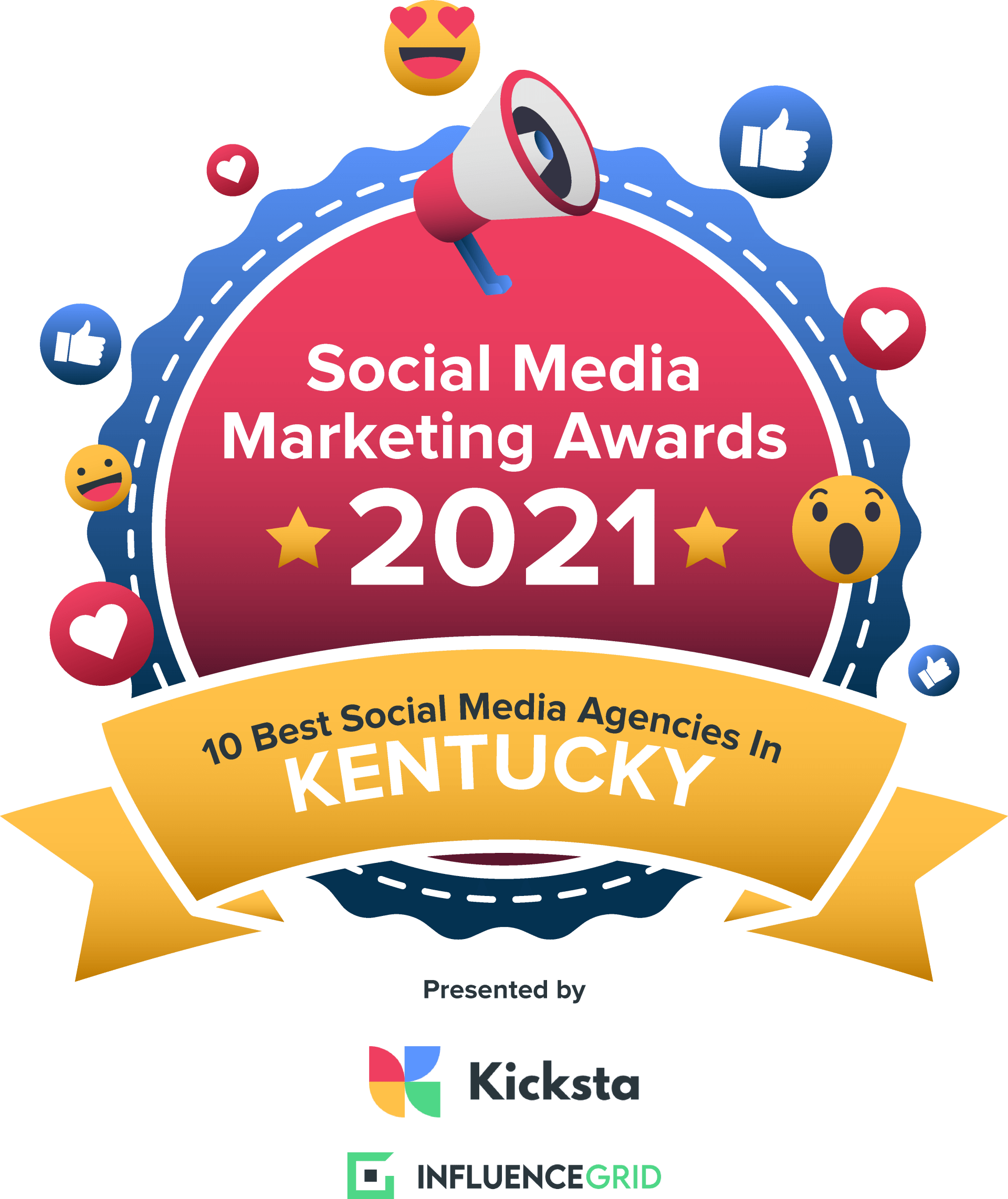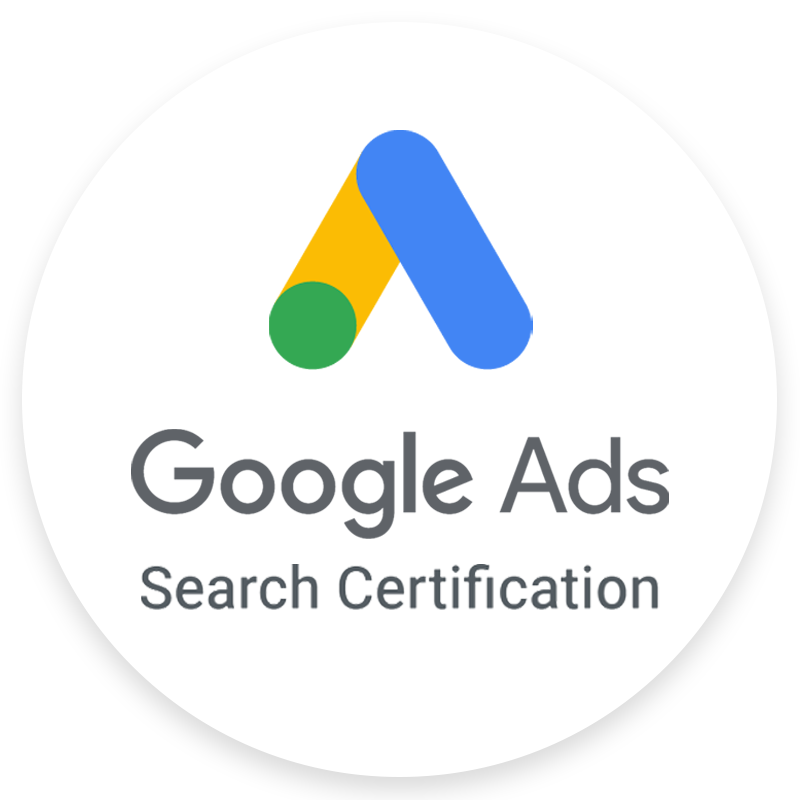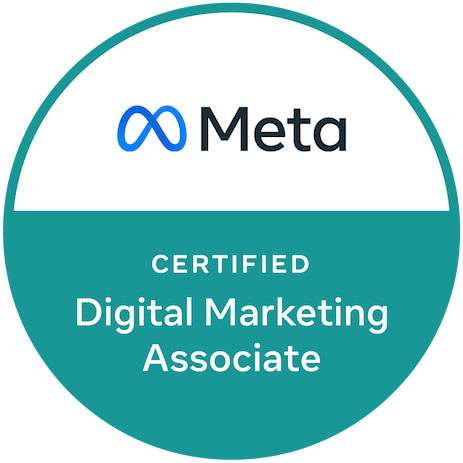The Creekmore Marketing Guide to Google for Small Businesses
Want to learn more about Google and how your business can use it effectively? Let Creekmore Marketing tell you a little about Google’s history and some of the ways your business can use Google to improve its online presence.
Originally Published in 2017 and Updated May 2024
Google is an important part of any small business’s online presence. Google’s search feature has become genericized with searching on the internet—how many times have you heard “Let me google that?” as shorthand for any search? Plus, Google offers many other features and services many small businesses rely on to be seen every day, including Google Business Profiles and Google Maps, Google Ads, and now expansions into AI technology with Google Gemini.
But how did this digital giant start, and how can businesses use these features to build their web presence and their business? Our digital marketing experts at Creekmore Marketing have developed this guide to Google to help get you and your business acquainted with this institution.
History of Google
In the digital landscape, standing out can be a formidable challenge, particularly for small businesses. Understanding the origins and evolution of different search engines, especially Google, offers a valuable perspective in crafting strategies that yield results.
When considering the titans of the digital age, one might presume Google has always been at the forefront. However, this global powerhouse began rather late, in 1996, as a research project of two industrious Stanford University students, Larry Page and Sergey Brin. Page was interested in how math served to link pages on the internet and created a database of how different pages linked to each other with Brin’s help.
Their initial venture, affectionately termed "BackRub," was designed to streamline academic research by tracking citations. This academic project, however, evolved into a disruptor of the status quo. Page and Brin introduced a transformative concept in their thesis, the foundation of which is known as the "PageRank algorithm." It posited a revolutionary idea: the more a webpage is referenced—linked to—by others, the greater its relevance. Such relevance should reflect in a higher positioning within the search results. This principle underpinned the very essence of what would become Google's algorithms, influencing how search results are served to users even today.
Officially incorporated in 1998 and patented a year later, Google—deriving its moniker from 'googolplex,' symbolizing vastness (1 followed by 100 zeros)—has come to embody the infinite potential of web search. A playful nod to this concept is subtly imbued in the design of the Google logo, exhibiting successive 'O's, mirroring the expansive nature of a googolplex.
Since their initial use as an academic database, Google has spread its uses out as well—disrupting and innovating in such varied industries as digital search and advertising, consumer technology, and many other services.
As a trusted partner, Creekmore Marketing assists businesses to navigate the intricacy of Google and its relationship to their digital marketing platform, providing the tools and expertise required to thrive. Contact us for a free digital marketing consultation with a member of our team.
Google Search
According to GS Statcounter, as of April 2024, over 86.5% of search engine market share in the United States belonged to Google, with the nearest competitors being Microsoft Bing at only 8% and Yahoo! and DuckDuckGo each controlling under 3% of the market. It goes without saying that this volume of potential search traffic places Google at the forefront of your small business’s digital marketing strategy.
Google regularly updates its algorithm—the complex series of formulas that help it determine the usefulness and relevance of different search results it populates—to refine its results. Small businesses see these changes in how they rank on search engine results pages (SERPS) and how often they appear in featured snippets and other high-visibility locations on Google’s search pages.
In 2024, Google has seen updates to its algorithm and will continue to see changes that require alterations to how a business plans its search engine optimization (SEO) strategies. Its March 2024 Core Update was one of several recent additions that have continued to hone their focus on high-quality expert content that comes from high-authority and trustworthy sites.
By enacting a complete and thought-out SEO strategy, businesses can grow their impact and appear higher on the Google search results page by creating thoughtful content.
Google Business Profile
Formerly known by the name “Google My Business,” Google Business Profiles are free tools that help businesses get listed on Search and Google Maps. But creating a Google Business Profile is only the start of the process. Your business needs to have the ability to manage and edit its listing through a verified Google account in order to use its Google Business Profile to its best benefit.
Usually, you can find Google Business profiles underneath pay-per-click advertisements and above organic search content. These listings are often associated with Google Maps and include a variety of information about the business, including its phone number, address, links to its website and social media, and categorizations for the business.
Once Google takes the profile through its verification process, clients can find the business and leave reviews, add photos, and questions, and more. The business can reply to reviews, answer customers’ questions, and add additional descriptions, products, and service information to bolster its visibility and relevance on Google’s platform.
Whether your business decides to handle this process by itself or in coordination with a digital marketing company, the Google Business Profile is another opportunity for you to consider your business’s SEO presence, develop unique and expert content, and let potential customers know where you are, what you offer, and what helps you stand out from the pack.
Google Ads & Pay-Per-Click Advertising
According to Statistica, in 2023, Google’s total advertising revenue totaled over $237 billion. This whopping sum was generated through its display ads in its search results pages, product listings, and across the broad spectrum of Google’s advertising network—including YouTube—and is a massive contributor to the visibility and success of many businesses large and small.
While SEO and pay-per-click (PPC) advertising have a lot of similarities in that they use ranking keywords to improve a business’s visibility, their differences matter a great deal. Pay-per-click advertising uses Google Ads to bid on ranking keywords and offers precise targeting options with agile ways to respond and segment advertisements to different audiences based on age, income level, exact location, and other determining factors that may drive your preferred demographic of customer straight to your business.
Using Google Ads, your business pays a fee each time one of its ads is clicked, essentially buying visits to specific landing pages on your site, rather than pulling them organically through SEO. This immediacy is instrumental for businesses seeking a quick uptick in traffic for time-sensitive campaigns or to gain a foothold in competitive markets.
The Future of AI and Google Gemini
Google has always been at the forefront of innovation with its search technology. The company continues to innovate with automated intelligence in its search engine processes—first all the way back in 2001 when it rolled out machine learning to help users autocorrect their spelling errors. In 2023, Google continued this expansion in machine learning when it unveiled Google Bard using its conversational language model, LaMDA. Google Bard helped users combine all of their Google services like its Search, Google Drive (a file sharing system), Maps, and more than 30 other systems to be even more comprehensive.
Now named Google Gemini, this system can come together to create search results from Google’s top-ranked listings. Bard also generates content like text and images and combine all sorts of other information to be even more versatile and usable than ever before. The implications for how automated intelligence and its impact on business on all sizes is still to be determined—but the fundamental truths still remain that Google itself and local customers and businesses still rely on content and information that comes from real human experts who are local to them and truly understand their needs.
Creekmore Marketing Can Help You Conquer Small Business SEO
No matter your business’s size or scope, it’s important to make sure that you are tailoring your business’s digital marketing strategy to pay attention to this key player in paid advertisements and organic search engine optimization.
Creekmore Marketing can help your business navigate the best way to utilize Google as it constantly evolves across the digital technology space.
Learn how Creekmore Marketing can grow your business with enhanced Google services. Contact us online or give us a call at (859) 309-5987 for your free consultation and speak with a member of our team today.
Curious about other business listings and search engines? Check out our guides to Apple, Bing, LinkedIn InMail, Yahoo, and more.











